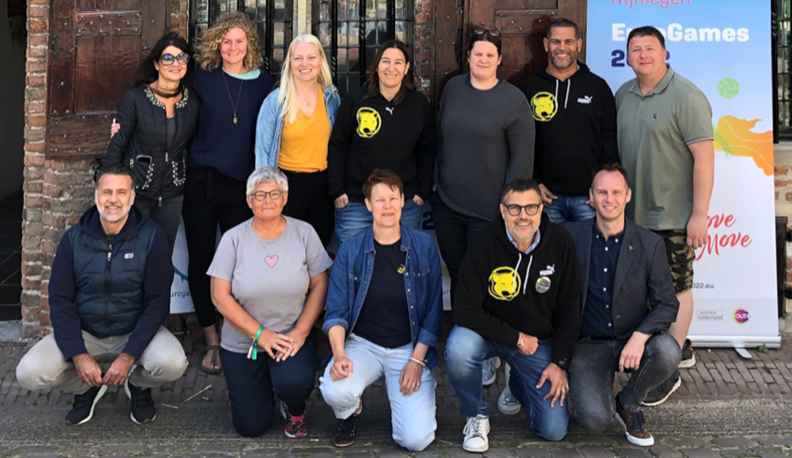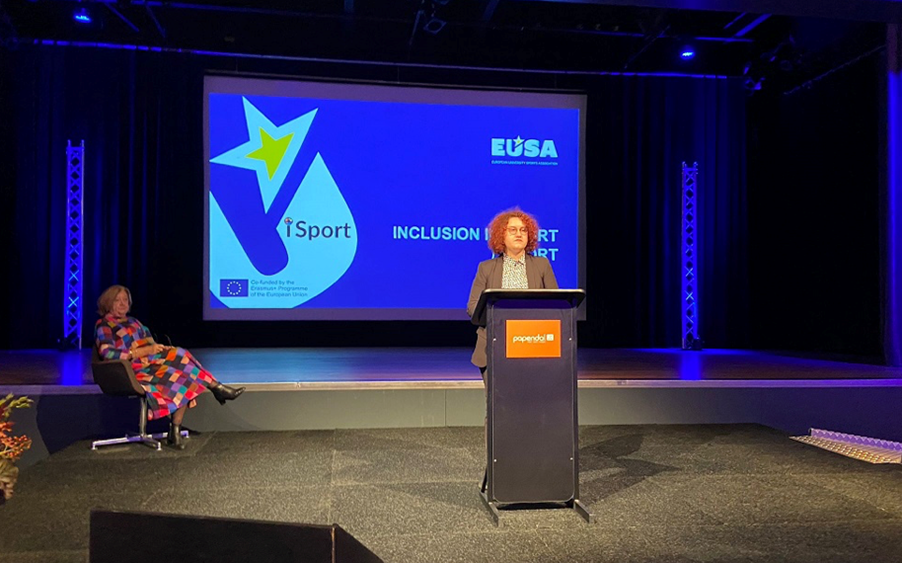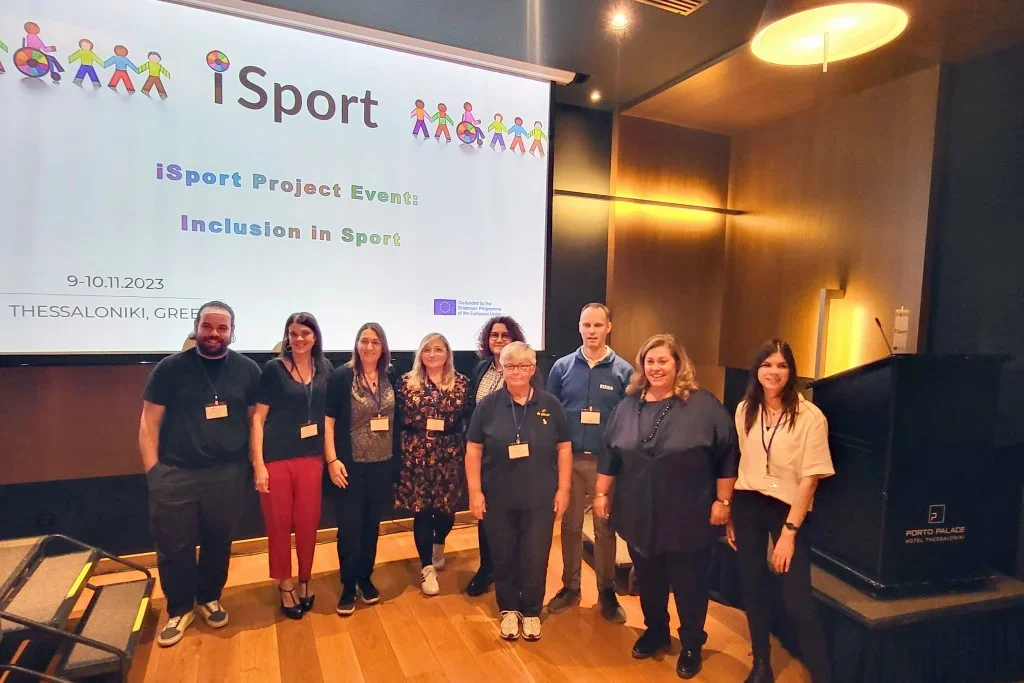Inclusion in Sport - iSport
The two-year iSport Project aimed to promote diversity and social inclusion in sport by enhancing the sporting experience of all participants – athletes and volunteers, with a special focus on women, LGBT+ individuals, and people with disabilities. The project also aimed to promote equal opportunities and raise awareness of the importance of health-enhancing physical activity through increased participation in, and equal access to, sport for all.
The project, co-funded by the Erasmus+ Programme of the European Union, was unique in bringing together actors from profiles underrepresented in sport – women, LGBT+ individuals, and people with disabilities – with the goal of increasing their participation in sport competitions and tournaments, and providing them with the experience of shared sporting experiences and the opportunity to learn about each other's uniqueness.
The project commenced in 2021 and concluded in 2023, with the main goal of increasing the participation of the target groups in sports competitions and tournaments, as well as providing the experience of shared sporting experiences and the opportunity to learn about each other's uniqueness.

The project included several major activities, including the development of online training that was developed as a MOOC, gamifying scenario playouts as serious game-based learning, organizing multiplier sports events run by the partners, and creating an overall summary packed with recommendations that would be useful for event organizers of multi-profile sports events.

Throughout the project duration, the iSport project partners held regular partner meetings, both online and in person, on the occasion of the EURO Games in Nijmegen and the European Sport Platform in Arnhem, to keep up with task completion and follow the development of the scenario-based game created for educational purposes. This inclusion in sport project was presented as one example of best practices at the European Sports Platform 2022, as an innovative tool encouraging inclusion and promoting equal opportunities.

In the beggining of 2023, the partners were provided with an update on the development of the serious game and working tasks. The meeting detailed and showed the finished draft of the scenario-based serious game, outlining every step and choice available.
The partners were shown the gamification version of all four scenarios and how to access different parts of it, such as the leaderboards, the mini-games, and the results table. The partners are now evaluating this version of the game before it is launched to the general public. The partners agreed on the dates for the next partner meeting, which was held in May in Barcelona, Spain, to discuss future work tasks.

Partners of the Inclusion in Sport (iSport) project gathered on 9th and 10th of November in Thessaloniki, Greece, for the final conference and meeting, to conclude all the results and outputs of 3-year work. The meeting was conducted as a part of the International Conference on Interactive Mobile Communication, Technologies and Learning (IMCL), hosted by Aristotle University of Thessaloniki (AUTH), one of the project’s partners.

Witin this project, the following resources have been completed:
- iSport Case Studies for Inclusive Sport (use cases - good practice examples)
- iSport Massive Open Online Courses (MOOC)
- iSport Simulation and training platform (Game) - online and as an app
- iSport Recommendations for Inclusive Sport Events, available in:
- English
- French
- German
- Spanish
- Greek
- Dutch
- Polish
- Finnish
- Swedish
- Slovenian
- Catalan
We invite you to check out the resources, use them, share them and help us spread the word!
The project consortium consisted of eight partners from eight countries, led by the EUSA Institute (SLO). Project partners include: Panteres Grogues Sports Club (ESP), Aristotle University of Thessaloniki (GRE), Finnish Paralympic Committee (FIN), University Sports Association of Poland (POL), European Paralympic Committee (AUT), European Non-Governmental Sports Organisation (SWE) and European Gay and Lesbian Sport Federation Vereniging (NED).
For more information on the Inclusion in Sport (iSport) project, please see https://www.isporteurope.eu/
